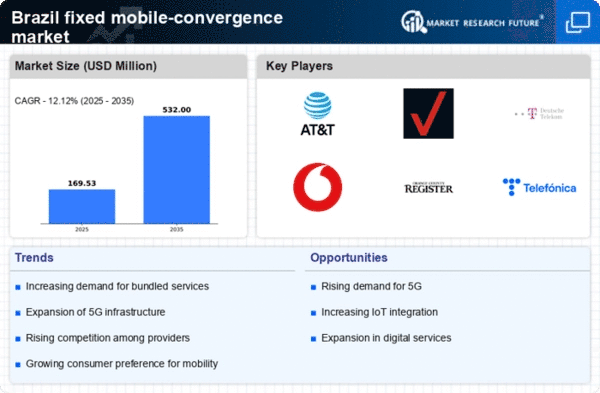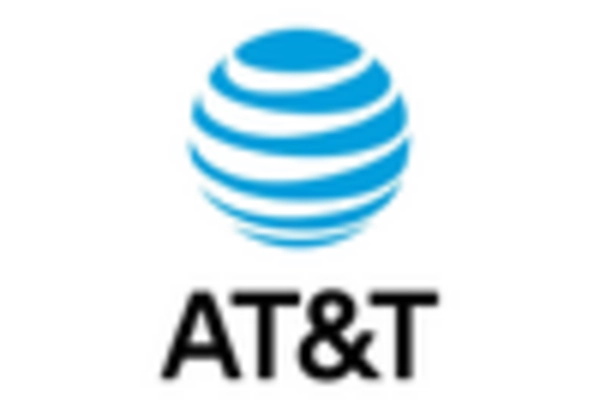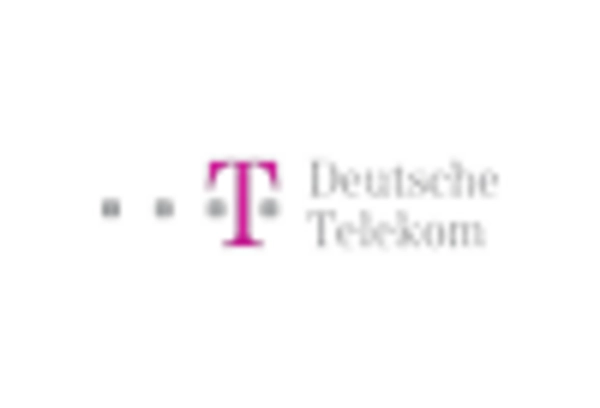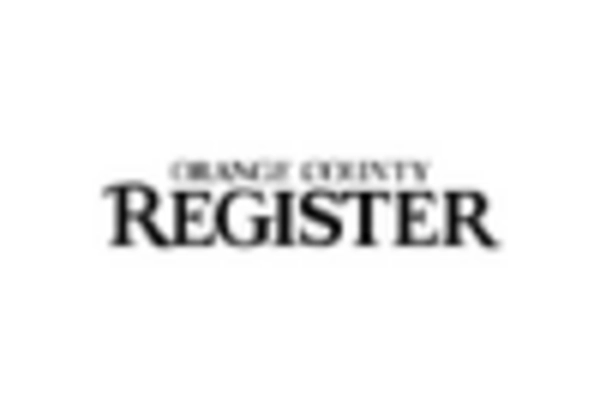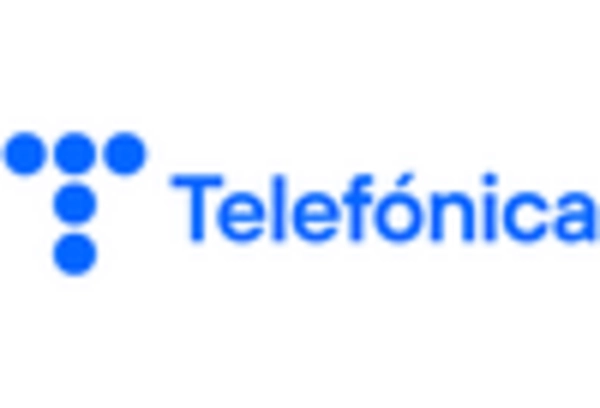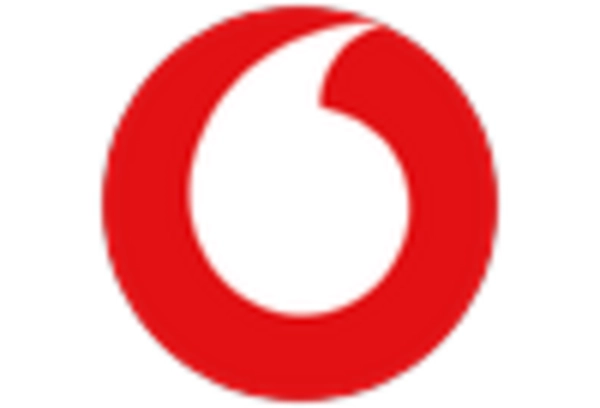Competitive Pricing Strategies
Competitive pricing strategies are emerging as a key driver in the fixed mobile-convergence market in Brazil. With numerous players vying for market share, companies are adopting aggressive pricing models to attract and retain customers. As of 2025, the average cost of bundled services has decreased by approximately 20%, making them more accessible to a broader audience. This trend is encouraging consumers to switch to bundled offerings that combine mobile and fixed-line services, thereby increasing overall market penetration. Additionally, promotional campaigns and loyalty programs are being utilized to enhance customer retention. The focus on competitive pricing is likely to intensify as companies strive to differentiate themselves in a crowded marketplace, ultimately benefiting consumers through improved service offerings.
Rising Mobile Data Consumption
The fixed mobile-convergence market in Brazil is experiencing a notable surge in mobile data consumption. As of 2025, mobile data traffic is projected to increase by approximately 50% compared to previous years. This growth is driven by the proliferation of smartphones and mobile applications, which are becoming integral to daily life. Consumers are increasingly seeking seamless connectivity across devices, prompting service providers to enhance their offerings. The demand for high-speed internet and mobile services is compelling companies to innovate and bundle services, thereby fostering competition in the fixed mobile-convergence market. This trend indicates a shift towards integrated solutions that cater to the evolving needs of consumers, ultimately shaping the landscape of telecommunications in Brazil.
Growing Demand for Smart Home Solutions
The growing demand for smart home solutions is significantly influencing the fixed mobile-convergence market in Brazil. As consumers increasingly adopt smart devices, there is a rising expectation for integrated services that facilitate seamless connectivity. By November 2025, it is estimated that over 30% of households in Brazil will have at least one smart home device, creating a substantial market for service providers. This trend is prompting telecommunications companies to develop bundled packages that include mobile, internet, and smart home services. The integration of these services not only enhances user experience but also positions companies to capitalize on the expanding IoT ecosystem. As a result, the fixed mobile-convergence market is likely to see a shift towards more comprehensive service offerings that cater to the needs of tech-savvy consumers.
Increased Focus on Sustainability Initiatives
An increased focus on sustainability initiatives is emerging as a significant driver in the fixed mobile-convergence market in Brazil. As environmental concerns gain prominence, consumers are becoming more conscious of their carbon footprint and are seeking eco-friendly service options. Telecommunications companies are responding by implementing green practices, such as energy-efficient network operations and sustainable sourcing of materials. By 2025, it is anticipated that a substantial portion of consumers will prefer service providers that demonstrate a commitment to sustainability. This shift is likely to influence purchasing decisions, as companies that prioritize environmental responsibility may gain a competitive edge in the fixed mobile-convergence market. The integration of sustainability into business strategies is expected to reshape the market landscape, encouraging innovation and responsible practices.
Technological Advancements in Network Infrastructure
Technological advancements are playing a crucial role in the evolution of the fixed mobile-convergence market in Brazil. The rollout of 5G technology is expected to revolutionize connectivity, offering significantly higher speeds and lower latency. As of November 2025, major telecommunications companies are investing heavily in upgrading their network infrastructure to support these advancements. This investment is likely to enhance the quality of service and expand coverage, making it easier for consumers to access integrated services. Furthermore, the adoption of cloud-based solutions and Internet of Things (IoT) devices is anticipated to drive demand for converged services, as users seek to connect multiple devices seamlessly. The integration of these technologies is expected to create new opportunities for service providers.


